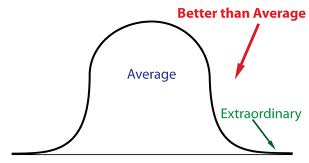

Every day behavioral health professionals make hundreds of decisions. As experts in the field, they meet and work successfully with diverse clients presenting an array of different difficulties. Available evidence indicates that the average person who receives care is better off than 80% of those with similar problems that do not. Outcomes in mental health are on par or better than most medical treatments and, crucially, have far few side effects! Psychotherapy, for example, is equal in effect to coronary artery bypass surgery and three times more effective than flouride for cavities.
Not all the news is good, however. Drop out rates run around 25% or higher. Said another way, clinicians do great work with the people who stay. Unfortunately, many do not, resulting in increased costs and lost opportunities. Another problem is that therapists, the data indicate, are not particularly adept at identifying clients at risk for dropping out or deterioration. For decades, research has has shown that approximately 10% of people worsen while in treatment. Practitioners, despite what they may believe, are none the wiser. Finally, it turns out that a small percentage (between 10-20%) of people in care account for lion’s share of expenses in behavioral health service delivery (In case you are wondering, roughly the same figures apply in the field of medicine). Such people continue in care for long periods, often receiving an escalating and complicated array of services, without relief. At the same time, clinician caseloads and agency waiting lists grow.
What can be done?
At one time, being a professional meant that one possessed the knowledge, training, and skills to deliver the right services to the right people for the right problem in a consistent, correct, and safe manner. To that end, training requirements–including schooling, certification, and continuing professional development–expanded, exponentially so. Today’s behavioral health professionals spend more time training and are more highly specialized than ever before. And yet, the above noted problems persist.
Some call for more training, others for increasing standardization of treatment approaches, many for more rigorous licensing and accreditation standards. The emphasis on “empirically supported treatments”–specific methods for specific diagnoses–typify this approach. However, relying as these solutions do on an antiquated view of professional knowledge and behavior, each is doomed to fail.
In an earlier era, professionals were “masters of their domain.” Trained and skillful, the clinician diagnosed, developed a plan for treatment, then executed, evaluated, and tailored services to maximize the benefit to the individual client. Such a view assumes that problems are either simple or complicated, puzzles that are solvable if the process is broken down into a series of steps. Unfortunately, the shortcomings in behavioral health outcomes noted above (drop out rates, failure to identify deterioration and lack of progress) appear to be problems that are not so much simple or complicated but complex in nature. In such instances, outcomes are remain uncertain throughout the process. Getting things right is less about following the formula than continually making adjustments, as “what works” with one person or situation may not easily transfer to another time or place. Managing such complexity requires a change of heart and direction, a new professional identity. One in which the playing field between providers and clients is leveled, where power is moved to the center of the dyad and shared, where ongoing client feedback takes precedence over theory and protocol.
In his delightful and engaging book, The Checklist Manifesto, physician and surgeon Atul Gawande provides numerous examples in medicine, air travel, computer programming, and construction where simple feedback tools have resulted in dramatic improvements in efficiency, effectiveness, and safety. The dramatic decrease in airplane related disasters over the last three decades is one example among many–all due to the introduction of simple feedback tools. Research in the field of behavioral health documents similar improvements. Multiple studies document that routinely soliciting feedback regarding progress and the alliance results in significantly improved effectiveness, lower drop out rates, and less client deterioration–and all this while decreasing the cost of service delivery. The research and tools are described in detail in a new series of treatment manuals produced by the members and associates of the International Center for Clinical Excellence–six simple, straightforward, how-to guidebooks covering everything from the empirical foundations, administration and interpretation of feedback tools, to implementation in diverse practice settings. Importantly, the ICCE Manuals on Feedback Informed Treatment (FIT) are not a recipe or cookbook. They will teach not to you how to do treatment. You will learn, however, skills for managing the increasingly complex nature of modern behavioral health practice.
In the meantime, here’s a fantastic video of Dr. Gawande on the subject. Use the cursor to skip ahead to the 2:18 mark:




